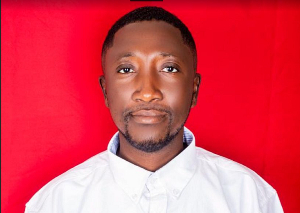- Home - News
- TWI News | TV
- Polls
- Year In Review
- News Archive
- Crime & Punishment
- Politics
- Regional
- Editorial
- Health
- Ghanaians Abroad
- Tabloid
- Africa
- Religion
- Election 2020
- Coronavirus
- News Videos | TV
- Photo Archives
- News Headlines
- Press Release
Regional News of Friday, 31 January 2003
Source: Ghanaian Chronicle
More Staff Needed At New Hospital in Sunyani
Sunyani (B/A Region) -- The newly constructed Regional Hospital at Sunyani would require a workforce of about 482, including medics and paramedic staff before it can operate effectively.
The current staff strength of 342 is inadequate for the hospital to operate fully as a regional hospital. Due to the shortfall of about 168, the Brong Ahafo Regional Director of Health Service, Alhaji Mohammed Ibn Ibrahim, has decided to move into the new regional hospital in phases, beginning in June this year.
Breakdown of the proposed workforce, according to statistics available to Chronicle indicate that the new hospital, constructed by the International Hospital Group, would require a total of 202 nurses as against the current figure of 150, whilst the strength of midwives would be reduced from 45 to 32.
Speaking to Chronicle, the regional director said that 48 doctors consisting of 25 general practice doctors, two ophthalmologists, three dental surgeons and eight specialists would be employed to run the hospital.
He further hinted that four pharmacists comprise of three general pharmacists and one clinical pharmacist would be needed.
On auxiliary staff, the regional hospital would be employing three accountants as against the current four at post at the existing regional hospital. In addition the eight accounting staff would be increased from eight to nine by one more officer.
Areas that the new hospital would increase its workforce are stores, five to eight, maintenance, three to four, security four to 12 and administration, seven to 14. Others are laundry 12, would be maintained, catering 18, against 14, housekeeping orderlies would be increased from 43 to 73, CSSD, three to 10 and 3 staff for social services would be employed.
The rest are biostatistics, 12 against 10, laboratory 14 against 8, radiology three and one each for radiologist, in service training and equipment technologist.
On accommodation, Dr. Ibrahim revealed that there are only 48 flats for both nurses and paramedical staff, which he said, was inadequate to accommodate the additional workforce to be employed.
Thirty flats, according to the regional director, are serving as accommodation for doctors and other senior medical offices.
He appealed to the public to co-operate with the management of the hospital when it begins moving in phases, because most cases would be referred to the old regional hospital, as all staff cannot move at once.
Alhaji Ibrahim revealed that after a successful transfer to the new hospital the existing one would be converted to a district hospital to off-load the work on the regional hospital.
To ensure enough nurses at all times, the regional health director told Chronicle that nurses training College would be established at the new hospital to train and supply the hospital and others in the region.
The new regional hospital would be serving a population of about 1.8 million in Brong Ahafo Region.










